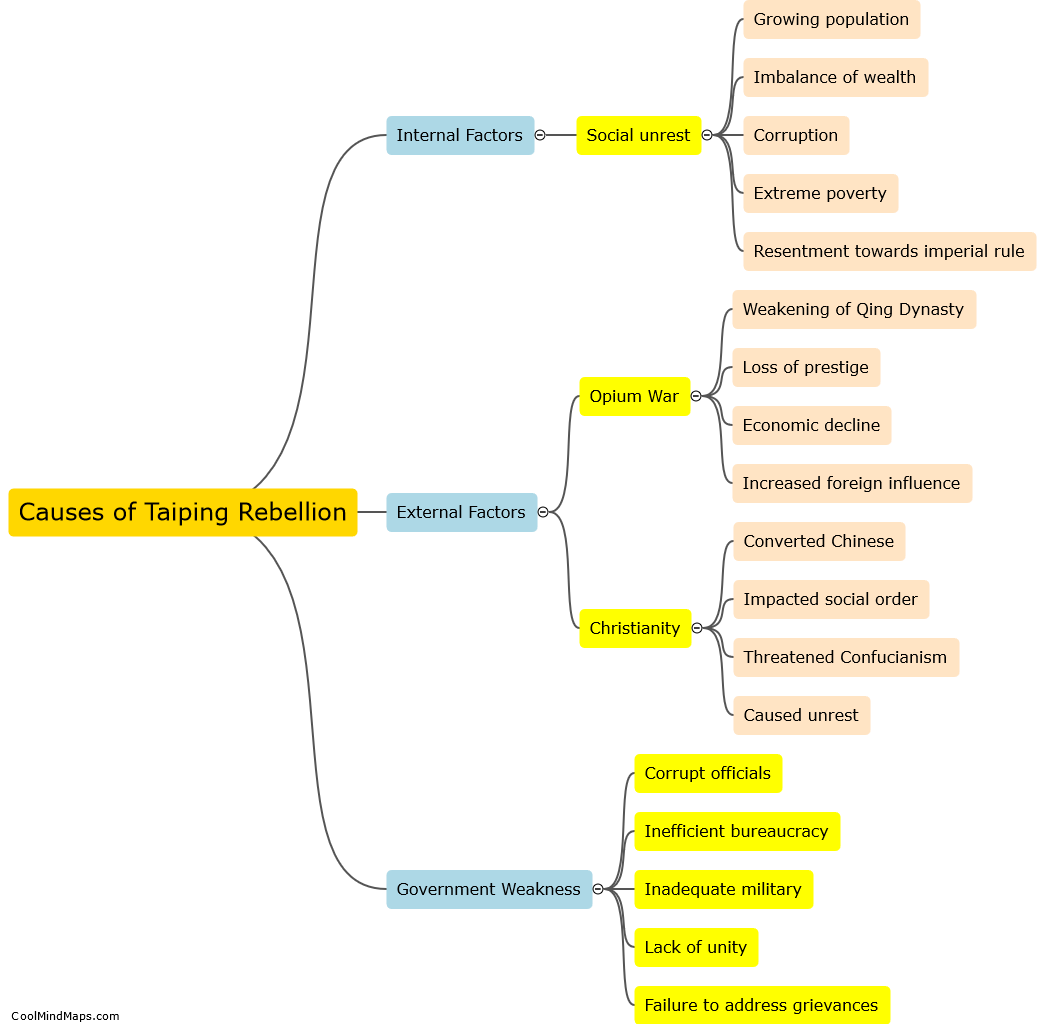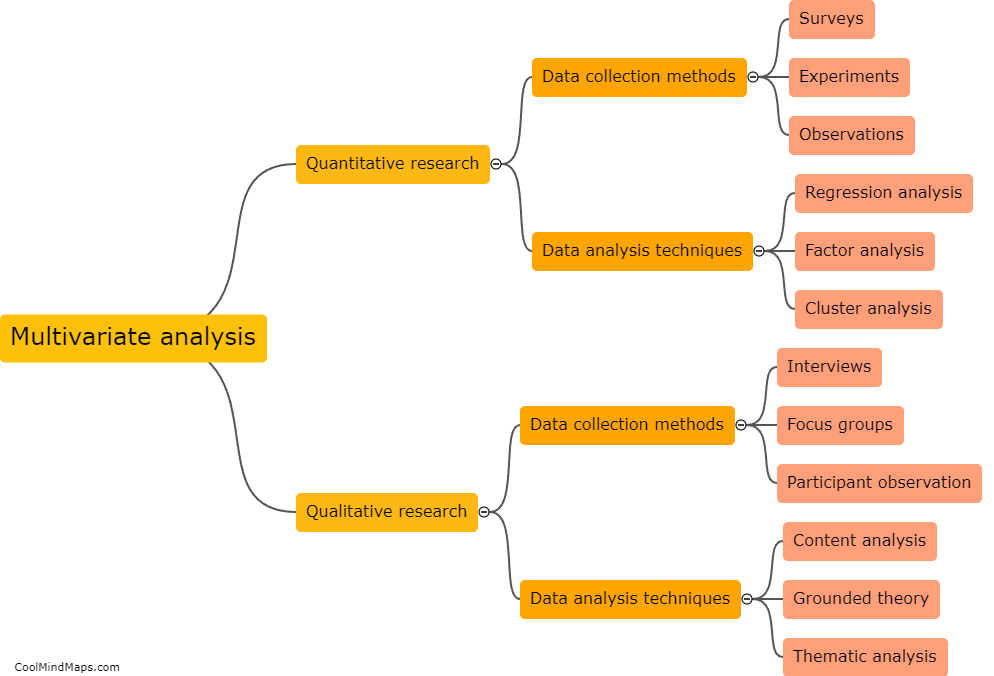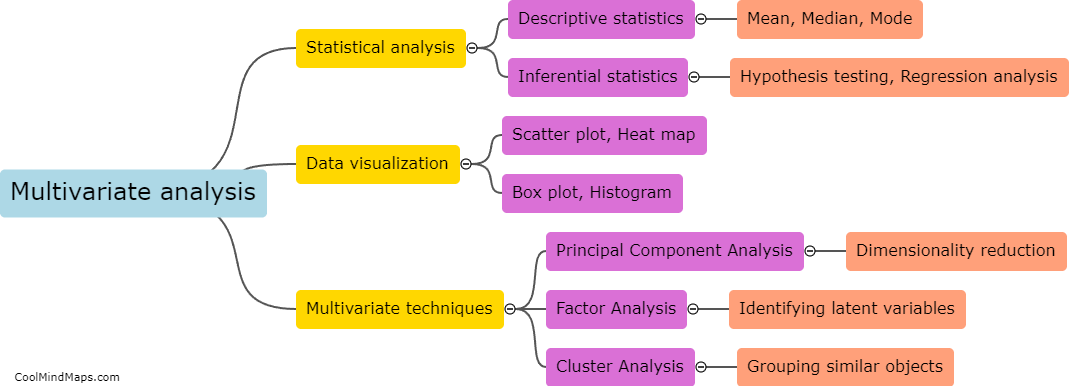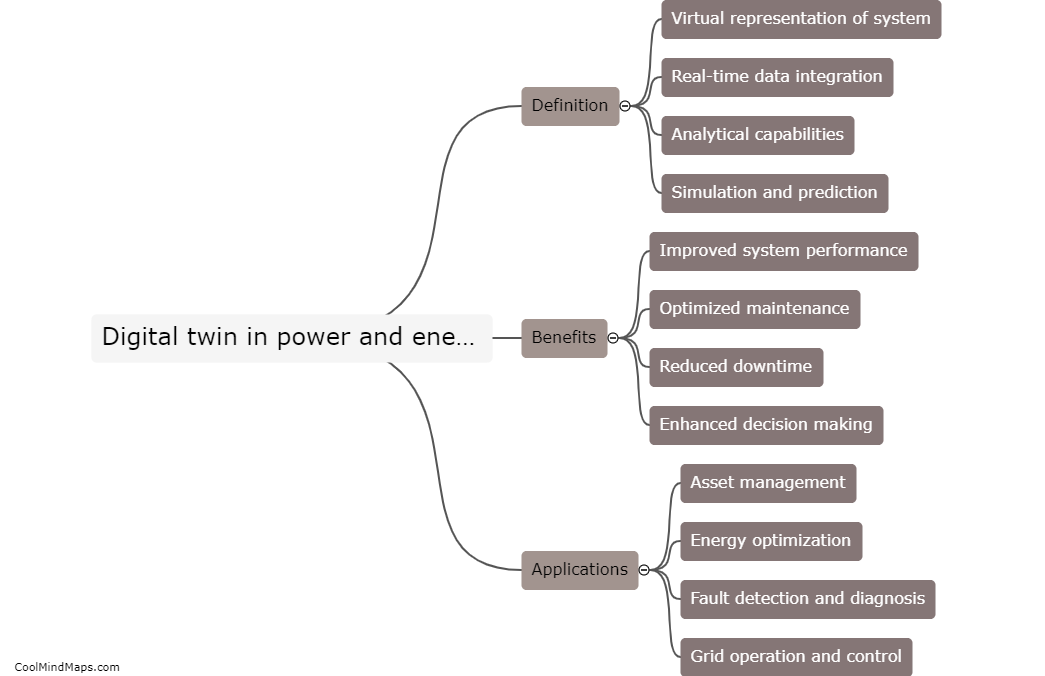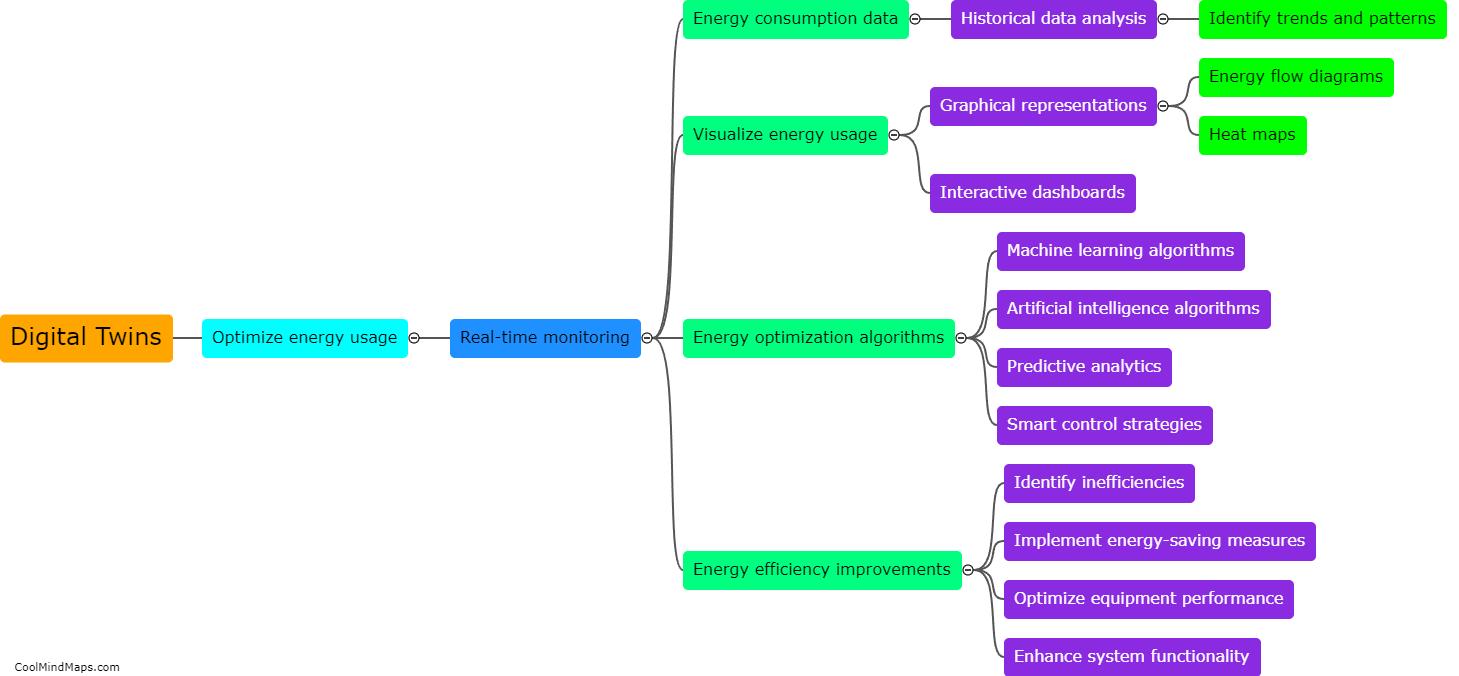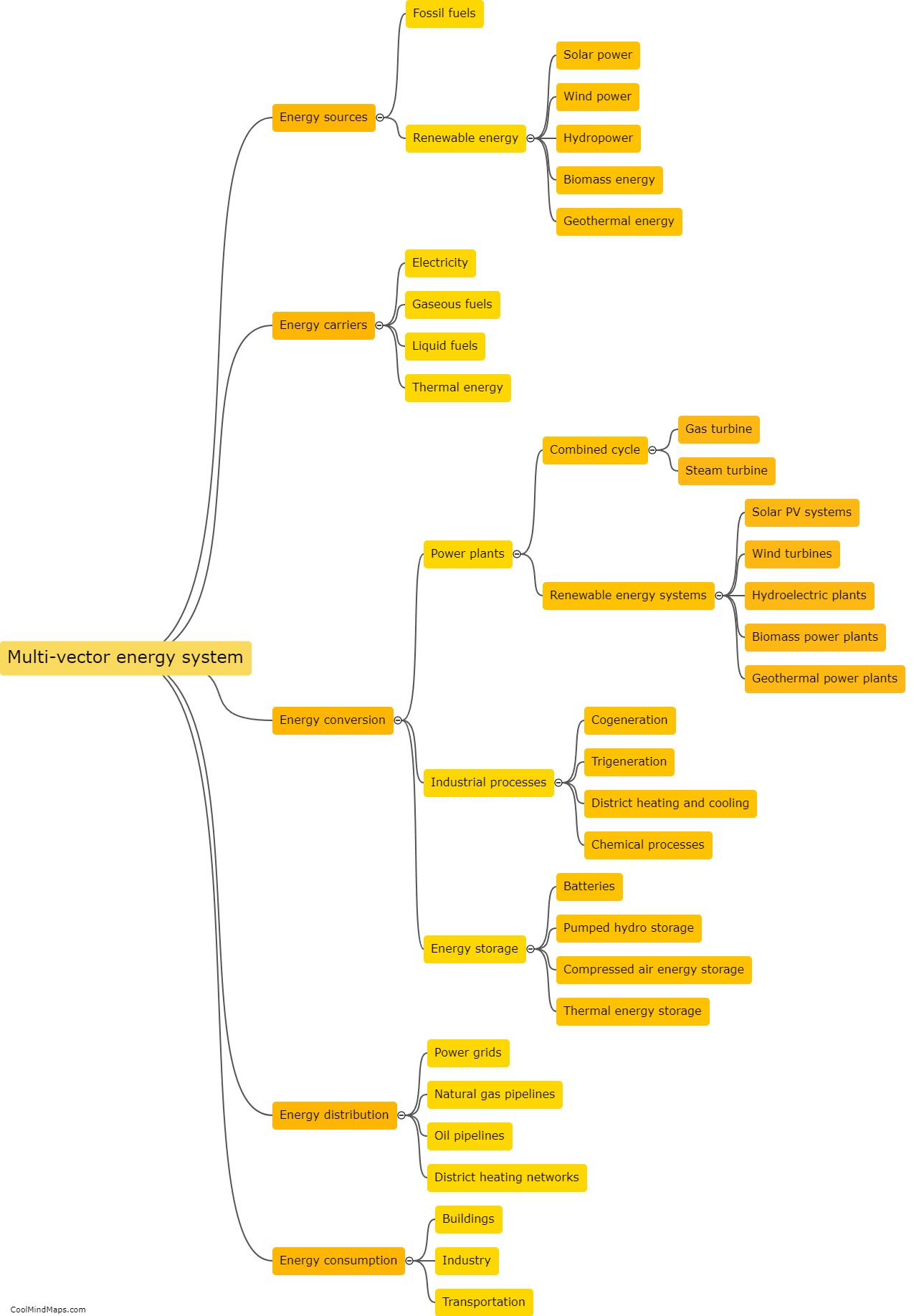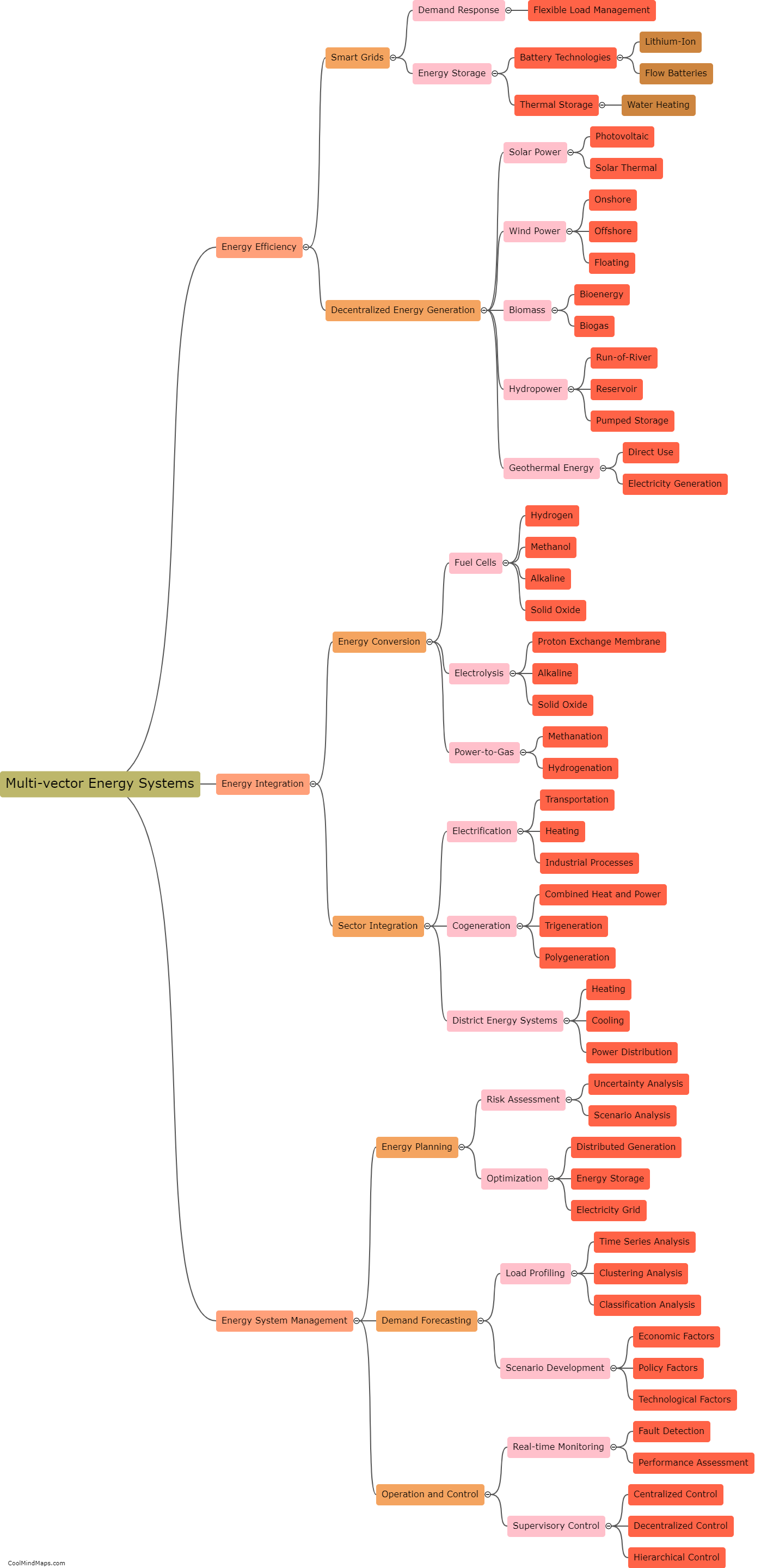What is an energy hub?
An energy hub refers to a centralized location or facility that serves as a hub for the generation, storage, and distribution of various forms of energy. It is designed to optimize energy efficiency and integrate different energy sources, such as electricity, natural gas, renewable energy, and even waste heat. Energy hubs play a crucial role in enabling the transition towards a more sustainable and decentralized energy system. They facilitate the coordination and integration of different energy technologies, allowing for greater flexibility, reliability, and resilience in the energy supply chain. Energy hubs can also support the development of smart grids, energy trading markets, and innovative energy storage solutions, effectively transforming the way energy is produced, consumed, and managed.

This mind map was published on 26 October 2023 and has been viewed 96 times.

